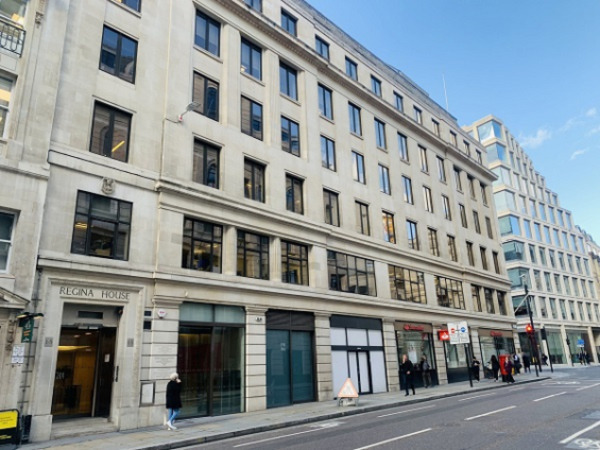Joy News can confirm that Oil conglomerate Trafigura’s Ghana Power Generation Company has taken over one of the country’s most important commercial properties, the Regina House in London, following the failure of the government to pay up a $134 million judgment debt.
For four years Trafiguara has been unsuccessful in getting the government of government to pay up the judgement debt awarded to the energy firm after the abrupt termination of a power purchase agreement.
This situation forced Trafigura to secure another Judgement in the United States courts which awarded a mandatory interest on the default of 111.4 million dollars which remains the arrears to be paid by the Republic of Ghana.
Attorney General, Godfred Yeboah Dame has told Joy News it is up to the Finance Ministry to expedite action on the payment.
Following the latest Joy News report on the United States District Court ruling, Vice President of Imani Africa Bright Simons took to social media platform, X (Twitter) to state that one of Ghana’s most important commercial properties, the Regina House in London has been taken over by Trafigura following the judgment debt award by a tribunal in the United Kingdom.
According to Bright Simons, information on the seizure is being concealed by the Government of Ghana.
Joy News cheques, however, have confirmed that the Regina House which belongs to the Government of Ghana is now under receivership by Trafigura.
Ghana’s High Commission to the United Kingdom, Papa Owusu-Ankomah in an exclusive Interview with Joy News Thursday morning, disclosed that until the bills are settled Trafigura’s GPGC will be in full control over revenues accruing from the property.
He is therefore calling for more negotiations to avert the implications of this compounding interest.
“Until we pay in full or come into an arrangement to pay them,” Papa Owusu-Ankomah told Joy News, Trafigura will remain in control over the receivership of the Regina House and its proceeds, admitting also that “(Ghana) is now facing financial challenges.”
On January 26, 2021, a UK tribunal issued a Final Award after it concluded that Ghana breached its contractual obligations by terminating a power purchase agreement with GPGC on February 18, 2018.
Ghana argued that the foreign power company had failed to meet certain contractual conditions, leading to the termination. However, the tribunal disagreed, awarding GPGC $134,348,661 in damages, calculated based on an Early Termination Payment formula in the purchase agreement.
The award included an interest rate of six-month USD LIBOR plus 6%, and reimbursement of GPGC’s arbitration fees and expenses totalling $3,309,877.74.
Despite the ruling, Ghana only made partial payments totalling $1,897,692.40, leaving a significant outstanding balance.
After unsuccessful attempts to secure the remaining payment from Ghana, GPGC filed a case in the U.S. District Court on January 19, 2024, under the New York Convention and Chapter 2 of the Federal Arbitration Act, seeking to recover the compounding debt.
Court documents reveal that the U.S. court served Ghana with the petition on January 23, 2024, through Shirley Ayorkor Botchwey, Ghana’s Minister for Foreign Affairs and Regional Integration.
The documents were delivered in Ghana on January 29, 2024, with a signed confirmation of receipt.
However, Ghana failed to respond by the March 29, 2024 deadline and did not appear in the court.
The court determined that it had jurisdiction over the case, citing the New York Convention, which the U.S. has ratified, recognising UK arbitral awards.
The court also noted that Ghana had expressly waived its sovereign immunity and committed to international arbitration under the power purchase agreement.
In his August 6, 2024, memorandum opinion, Chief Judge James E. Boasberg emphasised that the arbitral award between the non-U.S. parties arose out of a commercial relationship, which falls under the New York Convention.
The Convention requires that member states recognise and enforce such awards, regardless of the parties’ citizenship or location.
While the judge did not grant pre-judgment interest to GPGC, the court will award post-judgment interest at the rate specified in U.S. codes, adding to the financial burden on Ghana.
Source: Blessed Sogah
ALSO READ:

